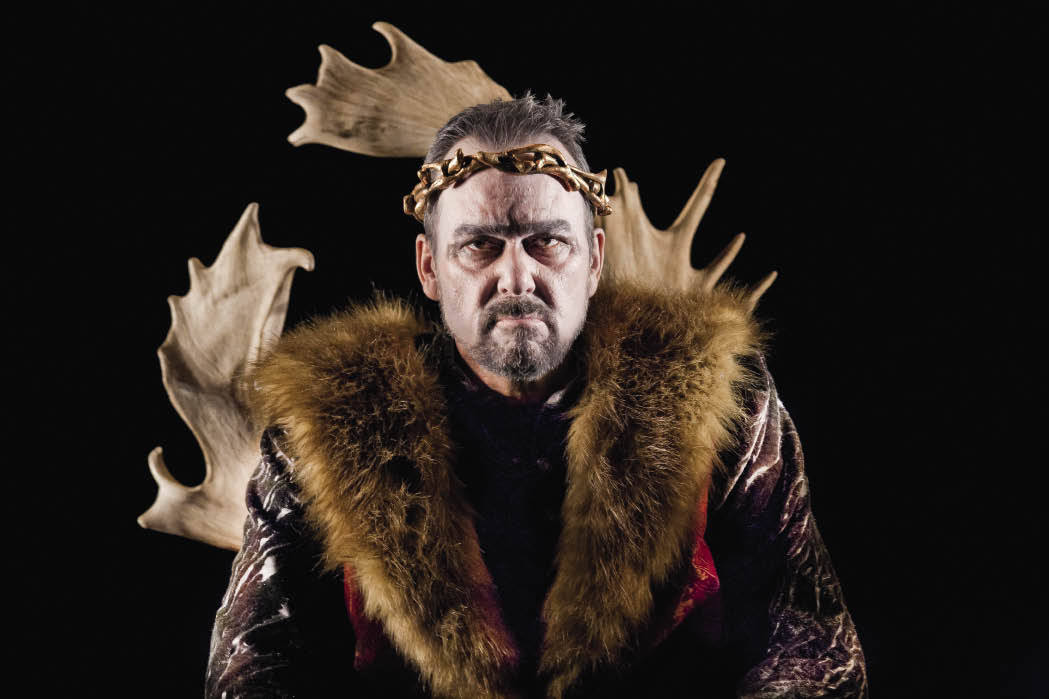Jonas Kaufmann’s ascent to the position of the leading German lyric-dramatic tenor has been surprisingly gradual. I first saw him in Edinburgh in 2001, giving a Lieder recital in the Queen’s Hall, and was immediately astonished that I hadn’t heard of him before. For the next few years, I heard him there in more recitals, and in concert performances of Der Freischütz, Capriccio and culminating as Walther in Die Meistersinger in 2006.
Jonas Kaufmann’s ascent to the position of the leading German lyric-dramatic tenor has been surprisingly gradual. I first saw him in Edinburgh in 2001, giving a Lieder recital in the Queen’s Hall, and was immediately astonished that I hadn’t heard of him before. For the next few years, I heard him there in more recitals, and in concert performances of Der Freischütz, Capriccio and culminating as Walther in Die Meistersinger in 2006.
Meanwhile, he had made his Covent Garden debut in Puccini’s La rondine, and subsequently went on, in Traviata, Carmen, Tosca and Don Carlo, all at Covent Garden, to demonstrate his extraordinarily powerful and natural stage presence, combined with a flawless vocal technique and deep musical intelligence. But only recently have any CDs appeared of him in the great Lieder composers, where he is at least as much at home as on the stage. His Wigmore Hall performance of Schubert’s Die schöne Müllerin was, as one might expect by now, a very hot ticket indeed, and was given an appropriately fervent reception.
In an interesting new German book on Kaufmann, with interviews with him and some of his colleagues, there is a striking passage where he talks of his somewhat fraught relationship to Hans Hotter, whose master-class he attended in 1993. Hotter insisted that the great Schubert song cycles must be narrated, not enacted, while Kaufmann insisted on the reverse: and, as he quite rightly points out, if you listen to any of Hotter’s recordings of Winterreise, he is living the journey, not telling us about it. I suspect that what Hotter wanted his students to avoid is the hammy rendering of Schubert and others that has tended to become the norm under the influence of Fisher-Dieskau.
With Kaufmann there is never any risk of overdramatisation, yet he is essentially a dramatic artist, and from the first note of Müllerin he was the young miller, even to the extent of sounding slightly tentative about embarking on his wandering, while extolling it. This great cycle has the singer — and the accompanist, here Kaufmann’s regular partner Helmut Deutsch — moving between two poles: the restlessness of the journey into life and love, and the hypnotic pull of the stream, itself moving but enticing the wanderer to immerse himself in it and finally to drown himself, a kind of proto-Isolde, though more physical and less metaphysical.
At 40, Kaufmann evidently feels that his days of singing this cycle are numbered, but at present he still brings a miraculously youthful tone to it, whether being briefly exultant in possessing the fair maid, raging against the intrusive green huntsman, or abandoning himself to easeful death: the last is most impressive of all. Kaufmann sings in the softest of head voices, risking inaudibility, but casting a spell the like of which I haven’t encountered in the concert hall or opera house for a very long time. It is a testimony to the seriousness with which he and Deutsch take their art that there were so many telling small differences between this performance and their CD of the same work, released earlier this year.
I revisited Promised End, Alexander Goehr’s opera of King Lear, at the Cambridge Arts Theatre. English Touring Opera, that astoundingly courageous body, goes on bringing unusual and contemporary opera to Cambridge, despite the wall of indifference, manifest in non-attendance, shown by the members of the world’s leading university. I doubt if there were half a dozen members of the audience under the age of 50.
What they missed, in the first place, was a performance of this very difficult work which was, if possible — it was, just — even more polished than the opening night at the Linbury Studio. Certainly Roderick Earle’s account of Lear had gained both in rage and in pathos. He let himself go, and so made a fitting counterpart to the superlative Nigel Robson as Gloucester, a truly remarkable account of a fairly short role in which every note must count, if the ghastliness of his fate is to register.
Seeing a new opera for the second time, if you have been bowled over by it the first time, is tricky. On the first encounter, you can afford to be passive, in an active kind of way, and allow yourself to be, and to report on having been, mainly stunned by the work. On the second visit you must, if you are a reviewer, look at it in a more questioning way.
And of course the first question in this case is how much the impact it makes is determined by Shakespeare rather than by Goehr. Has Goehr added anything, or did he intend to produce a work which was autonomous? If the latter, then he was mistaken in thinking that that is possible for an educated English-speaking audience. But if not that, what? What does the music do, since it doesn’t seem to intensify the words or action, or to distil them?
At present, I don’t know the answer, and can only say that the impact, though less than the first time, was very considerable and that I look forward to seeing it a third time, soon.






Comments